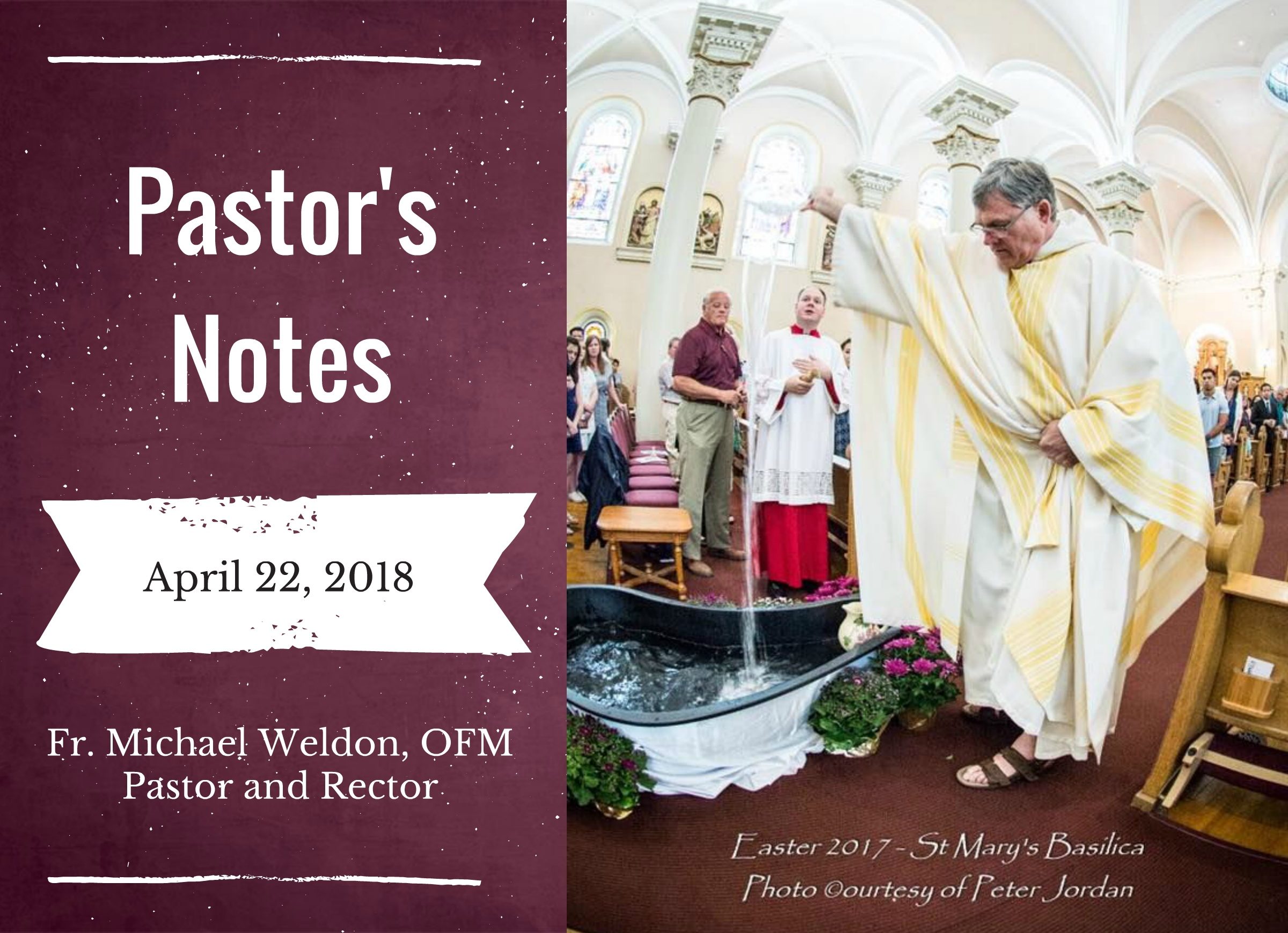St. Mary's Basilica
Phoenix, Arizona
Pastor’s Notes

This 4th Easter Gospel is for anyone responsible for others. This includes parents, teachers, social workers, priests and bishops. Anyone entrusted with others who are vulnerable and need guidance has a model in the Good Shepherd. Their office cannot be just control or direction from a distance. A true, really good shepherd goes among the sheep with humility and gentleness, until he or she, in Pope Francis’ words, “smells like the sheep.”
So on this “smelly’ Sunday of Easter season we give thanks to be part of the community of the risen Christ. But it is less a comfort zone than a staging area for God’s mission of mercy to the world. All the resurrection stories of these past weeks connect Resurrection to human forgiveness. Pope Francis’ strong emphasis on the link between mercy and evangelization cast new light on the risen Christ as in the world as the Good Shepherd.
In the Gospels, the risen Jesus returns to gather his disciples, who were scattered like sheep when he was arrested and executed. His first words are to offer them his peace — total forgiveness for their cowardice and flight in his hour of need. Like a shepherd, Jesus calls each by name and draws them close.
For any who have wandered away or feel abandoned by the church or respectable society, this Sunday is hope. The thought that someone is out searching for us, eager to rescue us from the brambles of human temptation and entanglement, to bind up our wounds, lift us onto strong shoulders and carry us home — it is a comforting image. It certainly beats the more judgmental message of too many church folks who expect the casualties to crawl in off of the battlefields if they are wounded. The pilot who brought in the wounded Southwest plane from Dallas this past week seemed to be of this ilk of leader. Her cool head and skill brought a plane full of people to safety after loosing an engine and the plane’s hydraulics. Our deep condolences to the family of the plane’s single casuality. But passengers stepped forward to to rescue and care for the one who was wounded.
The prodigal son, in Luke’s Gospel is ultimate lost sheep story, might never have come home if he thought his father would only scold, belittle and punish him. In his desolate state, the son must have sensed that his father was grieving for him and wanted him to turn homeward. In fact, the story suggests that it was the father’s longing, his daily walks to the gate to see if his son was on his way, that prompted the son to consider coming home.
The Good Shepherd will not give up on a single sheep. He knows each one by name, loves them so much he is willing to lay down his life to save each one. There is no talk of “cutting his losses” or the kind of “tough love” that lets a rebellious child suffer the consequences of his own actions before there can be any intervention or negotiated return home. God’s unconditional love leaps into action at the first sign of regret or repentance. As Pope Francis has said, “We tire of asking for God’s forgiveness, but God never tires of offering it.” God’s name after all is Mercy.
Thanks to a past issue of Pat Marrin’s Celebration article “Shepherd of Mercy” for much of this weekend’s reflection.
This has been an eventful Easter here at St. Mary’s. We stand with many shepherds are ready for an adventure.
A gentle week,
Fr. Michael Weldon, OFM
